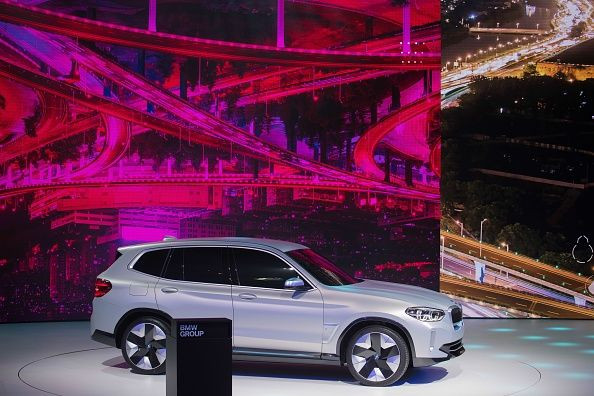BMW, Daimler Aim To Beat Tesla With Own Automated Driving Technology

German automobile giants BMW and Daimler have announced a partnership to develop advanced automated driving technologies.
The move is timely and significant as a cost and opportunity saver when new generation car makers including Tesla are surging in a race to offer the latest self-driving technologies.
They announced in February that talks have started for the joint development of automated driving technologies.
Thursday’s announcement said they finalized the partnership and expect to deploy the technology in mass-market vehicles by 2024.
Their partnership will develop assisted driving systems, automated driving on highways and automated parking, according to a joint statement. But the implementation of the technologies in their vehicles will be done independently.
Upcoming self-driving technologies
According to reports, the joint development is striving for automation up to SAE Level 4, which is the full self-driving level without human intervention.
The car makers said they are also looking to expand the scope of cooperation to cover highly-automated driving in denser urban areas under city-centric driving conditions.
The automated driving technologies preceding Level 4 will cover advanced driver assistance features including as smart cruise control and automated parking.
The Daimler-BMW union will keep the platform open for participation from other automakers and technology providers. Many OEMs will be invited to the union under a licensing program.
Both BMW and Daimler issued profit warnings earlier this year. Headwinds faced by the automakers include international trade conflicts and shrinking margins from the tightening of emission laws.
Teaming up for high-end technologies will save massive development costs. The legacy automakers are under pressure from new generation car makers like Alphabet’s Waymo in self-driving.
Tesla’s progress in autonomous vehicles
Meanwhile, Morgan Stanley analyst Adam Jonas noted that the advancements made by American electric carmaker Tesla in the autonomous vehicle market are not well appreciated in terms of valuation.
Many investors do not care to include Tesla’s autonomy business in the company’s valuation, he observed.
One example is GM Cruise ‘s whopping $19 billion valuations after a $1.15 billion funding from SoftBank and Honda. This is despite its lag in front of Tesla and Google Waymo in terms of real-world miles.
Jonas himself estimates Tesla’s self-driving technology at $8.5 billion.
The finding further reinforces Tesla’s strength from the rollout of its custom Hardware 3 computer as a milestone toward full self-driving.
Tesla CEO Elon Musk is on record that Tesla’s Full Self-Driving suite would be “feature complete” by end of this year.
Meanwhile, Tesla demonstrated the updated features of its automated emergency braking (AEB) system.
The base version was launched in 2017 covering all vehicles powered by its Autopilot technology. Now the automaker has added advanced features to the next-generation AEB update.
The upgraded features will help a vehicle automatically apply brake in situations like the Autopilot system seeing a pedestrian or cyclist crossing the car’s path and will act to pre-empt a collision.
© Copyright IBTimes 2024. All rights reserved.





















